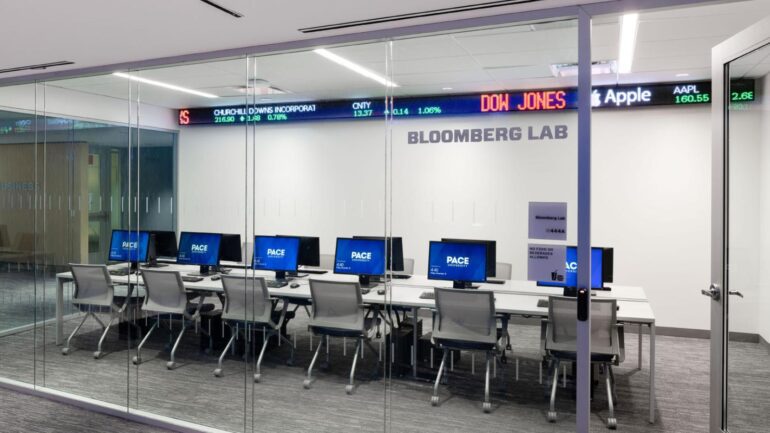TL;DR:
- Bloomberg Research predicts generative AI to become a $1.32 trillion industry by 2032, with a compound annual growth rate of 42%.
- AI software, such as AI assistants and coding acceleration programs, could generate $280 billion in revenue by 2032.
- Hardware, including AI servers and computer vision AI products, is projected to contribute $641 billion to the industry.
- Digital advertising related to AI and AI assistant software is estimated to bring in $192 billion and $89 billion, respectively.
- Generative AI is forecasted to capture 10 to 12% of the total market share in the IT hardware, software services, ad spending, and gaming markets by 2032.
- Despite safety concerns, generative AI has experienced explosive growth, with platforms like ChatGPT amassing over 100 million users in just two months.
- Calls for AI regulation are increasing, with EU lawmakers advocating for a global summit to control the development of advanced AI systems.
Main AI News:
In a groundbreaking report by Bloomberg Research, generative AI is poised to become a behemoth industry, with estimated revenues reaching a staggering $1.32 trillion by 2032. The report highlights that in 2022 alone, this burgeoning sector generated approximately $40 billion, showcasing an impressive compounded annual growth rate of 42%.
Amidst concerns regarding the potential existential threat posed by unregulated AI, generative AI has already proven its disruptive power, rapidly emerging as a multi-billion-dollar industry within a few short months. Despite the apprehensions, the exponential growth of generative AI remains unabated, instigating a significant paradigm shift in the technology sector.
Delving into the specifics, Bloomberg’s comprehensive report provides a detailed breakdown of projected revenues by various business segments. According to their analysis, AI software, encompassing AI assistants, infrastructure products, and coding acceleration programs, is expected to contribute $280 billion by 2032, demonstrating an impressive annual growth rate of 69%.
The lion’s share of the projected $1.3 trillion revenue is anticipated to stem from the hardware, accounting for a substantial $641 billion by 2032. Among the hardware components, devices will constitute $168 billion, while infrastructure will contribute a staggering $473 billion. Hardware revenue will primarily emanate from AI servers, AI storage, computer vision AI products, and conversational AI tools, with the latter estimated to be worth $108 billion.
Additionally, digital advertising related to AI and AI assistant software will play a significant role in revenue generation, with projections reaching $192 billion and $89 billion, respectively, as indicated in the report.
Bloomberg Intelligence further estimates that generative AI is poised to capture 10 to 12% of the total market share in IT hardware, software services, ad spending, and gaming markets by 2032, a remarkable increase from its current standing of less than 1%.
Mandeep Singh, the senior technology analyst at Bloomberg Intelligence and the lead author of the report, conveyed his perspective on the monumental growth expected in the generative AI sector over the next decade. “The world is poised to see an explosion of growth in the generative AI sector over the next ten years that promises to fundamentally change the way the technology sector operates,” Singh stated in a press release. “The technology is set to become an increasingly essential part of IT spending, ad spending, and cybersecurity as it develops,” he added.
While concerns surrounding the safety implications of generative AI continue to mount, the technology has undeniably experienced explosive growth. OpenAI’s ChatGPT, launched in November, became a global sensation, amassing over 100 million users within a mere two months. The platform’s swift rise to fame can be attributed to its remarkable ability to provide contextual answers, write code and essays, and even compose music.
The unprecedented success of ChatGPT has ignited a worldwide race in the field of generative AI, with Google introducing Bard, its own version, and Chinese companies like Alibaba unveiling Tongyi Qianwen, an AI Chatbot. Microsoft, having invested billions of dollars in OpenAI, also integrated ChatGPT 3 into Bing, its search engine, in an effort to seize market share from Google.
Nevertheless, as the generative AI revolution unfolds, concerns about safety and regulation persist. Elon Musk, who co-founded OpenAI alongside Sam Altman, has echoed these concerns, cautioning that AI could potentially jeopardize civilization if not properly regulated. This sentiment finds agreement among CEOs of major AI firms, including Deepmind.
Given the mounting unease, both technological and world leaders are now calling for stringent regulations governing AI. A group of EU lawmakers recently embarked on formulating AI legislation and advocated for a global summit to explore measures for controlling the development of advanced AI systems.
Conclusion:
The projected growth of generative AI signifies a transformative shift in the technology sector. With estimated revenues of $1.3 trillion by 2032, this industry presents lucrative opportunities for businesses involved in AI software, hardware, and digital advertising. However, the concerns surrounding safety and regulation necessitate careful governance to ensure the responsible and ethical implementation of generative AI technologies.

